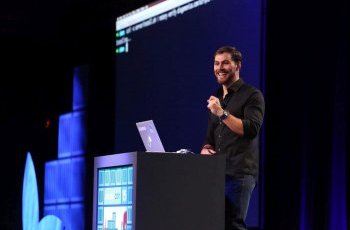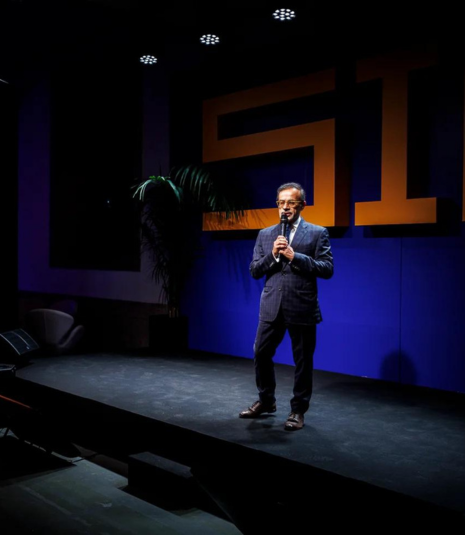Anchorage, the new Portuguese unicorn: We want to open cryptocurrencies to the world

Metrics such as the so-called unicorn status (when companies reach the valuation of one billion dollars) are "of little or no value" for the Portuguese Diogo Mónica, who was born in California (son of a sea captain and war captain in the Portuguese Navy ) but grew up in Lisbon. The company he co-founded and is president of, Anchorage, already seems to have investors ready to put his valuation above that, but at 34 his tech-based mission is just beginning in what he calls a "world revolution that cryptocurrencies and blockchain technology is unleashing and it won't stop".
The startup's value has skyrocketed since it was created in San Francisco in 2017. In 2019 alone, it raised two rounds of investment totaling $57 million and which included investors like Visa and the famous Silicon Valley venture capital firm, Andreessen Horowitz, with a valuation of 139 million dollars. In February, it raised 80 million (unknown valuation) from series C, for a total of 137 million.
The team already has more than 120 people in total (almost half engineers), they continue to hire and there are already more than 20 in Portugal - the rest are in the USA. They are based in San Francisco - curiously, they moved to Seattle, further north during the pandemic, due to criminal and social problems in the city - and an office in Porto.
They are now considering opening another space in Portugal, where they expect to have more than 40 people by the end of the year and open an office in Singapore, not least because one of the main investors in the last round (GIC) is from the Southeast Asian city-state. The 'new' millions raised will serve to "quickly scale to meet the huge demand of companies and traditional financial institutions to have digital goods".
"It's amazing how quickly Anchorage has valued so much and this is indeed a true startup by definition for having such rapid growth (not always what we see in Portugal). This is only possible because it was born and distinguished in a digital market in that everything is accelerated", explains Cristina Fonseca, who heads the Portuguese fund Indico, which also invested in the last round.
And what distinguishes the Portuguese-American Anchorage and what makes it have large banks as clients? "The technology developed that solves a recent complex problem created by two security engineers and the fact that we have become the first and only federal cryptocurrency bank in the US (ie, we are regulated by the OCC)." Diogo Mónica tells us (the full interview will be on the DV Made in Tech podcast on Tuesday) that this has been a journey side by side with his co-founder, the American Nathan McCauley.
The American adventure began in 2010 when he was invited to an event in the US, in São José, to present his doctoral thesis he was doing at the Instituto Superior Técnico, in Lisbon, in the area of distributed circuits.
There he convinced those present to the point of receiving invitations to work for Google and Facebook. He refused to not be just one among many and it was from his home in Lisbon that he ended up being interviewed by videoconference by Jack Dorsey - co-founder of Twitter and who was creating his new project at the time. He ended up accepting the challenge of being on the initial team that created the now global payments giant, Square.
"I joined Nathan the same week at Square in early 2011 and have been a mentor and partner ever since," he admits. After four "amazing years of learning" with Dorsey - "I saw him grow a lot as CEO and it influenced me" - he went with Nathan to manage the online security of the Docker developer platform, "which is used by more today half of the internet". "I went to the US with the idea of creating my company, but I quickly realized that without experience I wasn't going anywhere".
As for the regulation in this area, which is starting to grow, he guarantees that "it is welcome, because it helps to legitimize the technology and its advantages". About El Salvador, which started accepting bitcoins in the country as a bargaining chip, he hopes "that more countries will do the same and take advantage of cryptocurrencies, which can be different for each situation".
It also supports the entry of the countries themselves into the area of digital currencies, with their own currency, as China and Russia are doing. "The more in this area, the better because they legitimize the entire digital ecosystem", he indicates.
The country's presence, which will reach more than 40 people by the end of the year, "also allows for bringing knowledge in this area of cryptocurrencies and helping to form Portuguese talent that is technically good". Diogo Mónica maintains a close relationship with Instituto Superior Técnico and has been a business angel and consultant for some startups, including the Portuguese company JScrambler (already with a presence in the US), a cybersecurity company that prevents attacks on websites that use JavaScript. "I've been helping them open doors to relevant investors in California".




